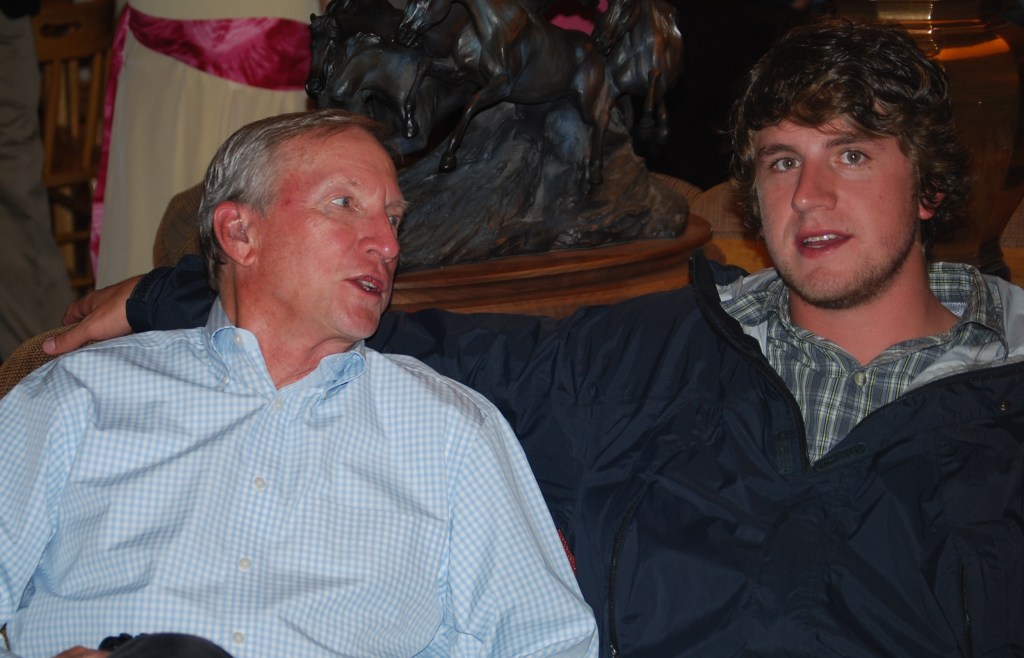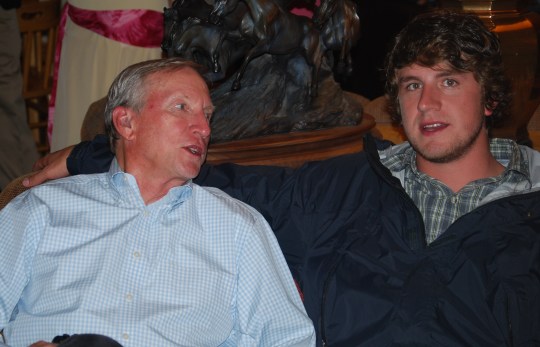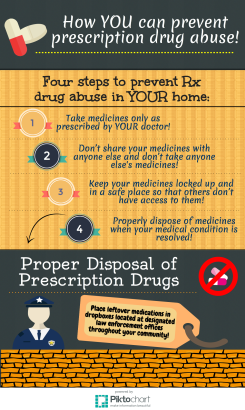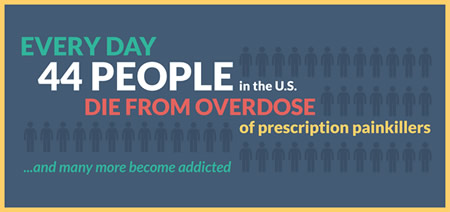Dallas Gay of Hall County began to see things in a new light in 2009, when he discovered that his grandson had a serious drug problem.
It was the nature of the drug that was especially surprising. Jeffrey Gay’s demon was not crystal meth, crack, or some other illicit substance. He was hooked on legal painkillers – drugs that doctors prescribe millions of times each year for their patients.
His grandfather immediately began looking for resources in Hall County, but found that preventing or treating this type of substance abuse was barely on anyone’s radar.
“No one seemed to be aware of how serious the epidemic was,” says Dallas Gay, 73.
National statistics show that drug-related deaths have been rising for the past 20 years, and today more people die from prescription drug overdoses than from car crashes.
The CDC estimates that nearly 2 million Americans abused prescription drugs in 2013, and that 44 die from opioid overdose each day.
Gay estimates that Hall County loses about 25 people a year to prescription drug overdoses, or about two each month.
The Gainesville resident’s search for information about this type of substance abuse led him to two prominent health care professionals in the city – Dr. Jack Chapman, an ophthalmologist, and Dr. Tennent Slack, an anesthesiologist and pain specialist.
Gay and the two physicians launched a public education campaign they called “Think About It,” emphasizing simple steps to help prevent medication abuse. The guidance includes taking medications as prescribed; not giving leftover pills to a friend; and disposing of medications at a secure site, i.e., one that is not in the household or public garbage.
In 2011, the three persuaded the Medical Association of Georgia Foundation to take the “Think About It” campaign statewide. This public education effort was a natural for an organization of physicians, says Lori Murphy, who develops new programs for the foundation. Doctors want to help people understand that opiate drugs are designed to relieve overwhelming pain, not for casual partying.
Protecting the protectors
When an overdose causes someone to become unresponsive and stop breathing, that person’s companions often don’t call 911 because they’re afraid of getting into legal trouble themselves. This is especially true of teenagers.
Such inaction is tragic, because nowadays prompt treatment can save the lives of many overdose victims. One particular drug, naloxone, has shown good results in this area.
Naloxone (sold as Narcan) is a medication that reverses opiate overdose when given as an injection or used as a nasal spray. “It has the potential to save the life of someone who is virtually at the point of death,” says Gay.
Gay and others interested in addressing the problem in Georgia lobbied hard to pass the “911 Medical Amnesty/Naloxone Law,” which Gov. Nathan Deal signed a year ago.
The law provides limited legal immunity to intoxicated minors who seek help for themselves or others in drug-use situations. It also provides amnesty to anyone who prescribes, issues or administers naloxone to a person who appears to be overdosing.
Jeremy Sharp, a junior at the University of North Georgia, was actively involved in lobbying for the amnesty law. Since the law went into effect less than a year ago, prompt use of naloxone has reversed 229 life-threatening overdoses, he says.
Loss and grief
Unfortunately, Gay’s grandson Jeffrey did not live to see the law take effect.
In 2012, after nearly two years of sobriety, Jeffrey relapsed and died of an overdose of prescription drugs. He was just a month shy of his 22nd birthday.
Had the amnesty law been in place at the time, and had Jeffrey’s friends known what to do in his final crisis, he might still be alive today.
Dallas Gay is a retired president of Protein Products, Inc., which produces catfish ingredients for pet food and feed industries. He remains as passionate as ever about trying to prevent deaths caused by misuse of prescription drugs. His next campaign focuses on putting naloxone in the hands of more police officers and educating first responders about proper first aid for someone who has consumed too much.
The Medical Association of Georgia Foundation is focusing on health care consumers, emphasizing that unused medicines need to be disposed of properly and securely. According to Gay, more than 70 percent of people who abuse prescription drugs get them through friends and family.
The family medicine cabinet may be an irresistible temptation for a young person looking for a cheap high.
As Lori Murphy says about recreational use, “A lot of kids think that they’re invincible, and they’re not.”
Rebekah Ryan, born and raised in Hall County, is currently seeking a master’s degree in public relations from the University of Georgia.




